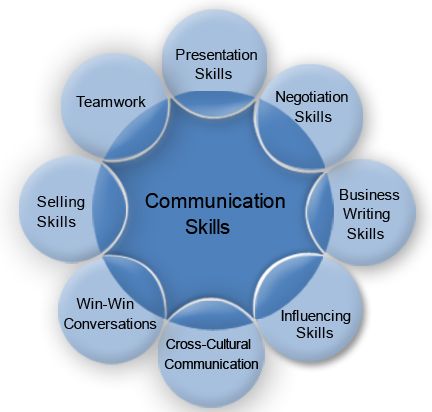Mass Media Vs Mass Communication: Which Is Best In 2025?
Welcome to the world of mass media versus mass communication! 🌍 In this article, we’ll explore the similarities, differences, and exciting aspects of these two powerful forces. So, let’s dive right in!
When we hear the words “mass media,” what comes to mind? 📺 Television, radio, newspapers, or maybe even social media platforms? Well, you’re on the right track! Mass media refers to various channels through which information and entertainment are shared with a large audience. It’s like a megaphone that amplifies messages and reaches millions of people in an instant.
On the other hand, we have mass communication. 🗣️ It’s like the art of crafting and delivering those messages. Mass communication is the process of creating, transmitting, and interpreting information to a vast audience using different mediums. It involves everything from writing articles to producing films and conducting interviews, all with the purpose of connecting with people and shaping public opinion.
Now that we have a basic understanding of mass media and mass communication, let’s explore their nuances further. Join us on this journey to unravel the exciting world of media and communication! 🚀
When it comes to mass media and mass communication, there are key differences to understand. Mass media refers to the various channels used to disseminate information to a large audience, such as television and newspapers. On the other hand, mass communication is the process of transmitting a message to a vast audience, regardless of the medium. While both play crucial roles in society, mass media focuses on the delivery of content, while mass communication encompasses the broader act of communication itself.

Key Takeaways: Mass Media vs. Mass Communication
In simple terms, mass media is the means through which information is transmitted to a large audience, like TV or newspapers.
On the other hand, mass communication refers to the process of exchanging messages through various channels, including mass media.
Mass media focuses more on the distribution of content, while mass communication encompasses the broader field of communication studies.
Mass media heavily relies on technology to reach a wide audience, while mass communication includes interpersonal and organizational communication as well.
Understanding the differences between mass media and mass communication helps us navigate the complex world of information dissemination and communication.
Comparing Mass Media vs. Mass Communication
Mass media and mass communication are two terms often used interchangeably, but they have distinct differences. In this article, we will explore the nuances between these two concepts and understand how they shape the way we consume and disseminate information.
Overview of Mass Media
Mass media refers to the various mediums through which information and entertainment are transmitted to a large audience. These mediums include television, radio, newspapers, magazines, and the internet. Mass media has a wide reach and plays a vital role in shaping public opinion, influencing social trends, and disseminating news on a global scale.
Mass media serves as a powerful tool for advertisers, politicians, and content creators to communicate their messages to a mass audience. It allows for the rapid distribution of information and provides a platform for diverse voices to be heard. Mass media has the power to entertain, educate, and mobilize individuals, making it an integral part of modern society.
Overview of Mass Communication
Mass communication, on the other hand, encompasses the process by which a message is transmitted from a sender to a receiver through various channels. It focuses on the study of how individuals and organizations convey information across different mediums.
Mass communication involves analyzing the process of encoding and decoding messages, understanding the role of media in shaping cultural norms and values, and examining the effects of communication on individuals and society. It encompasses both interpersonal communication and mediated communication, with a focus on the broader societal impact.
Key Features Compared:
Comparing mass media and mass communication
Reach and Accessibility
One of the key differences between mass media and mass communication is the reach and accessibility of these mediums. Mass media, as the name suggests, has a wide reach, allowing information to be disseminated to a large audience across various platforms. This wide reach enables messages to be transmitted quickly and efficiently, reaching a diverse range of individuals.
Mass communication, on the other hand, focuses on the process of communication itself, rather than the reach or accessibility of the message. It examines how messages are transmitted, received, and interpreted by individuals or groups. Mass communication encompasses both mass media and interpersonal communication, giving it a broader scope.
Roles and Functions
Mass media plays several roles in society, including that of an informer, entertainer, watchdog, and persuader. It provides individuals with news, information, and entertainment, while also serving as a platform for public deliberation and social change. Mass media has the power to influence public opinion, shape cultural norms, and hold those in power accountable.
Mass communication focuses on understanding the functions and effects of communication on individuals and society. It examines how the messages transmitted through mass media and other communication channels are received and interpreted by different audiences. Mass communication also considers the impact of communication on social, political, and cultural change.
Technology and Innovation
Both mass media and mass communication have been greatly influenced by advancements in technology and innovation. The rise of the internet and digital media has revolutionized the way information is produced, distributed, and consumed. Traditional mass media, such as newspapers and television, have had to adapt to the changing landscape and embrace new digital platforms.
Mass communication, as a field of study, has also evolved to encompass the digital age. It examines how technology affects the way individuals communicate, and how these changes impact society as a whole. The study of mass communication includes analyzing the role of social media, online platforms, and mobile devices in shaping communication patterns and behaviors.
User Experience
The user experience differs when it comes to mass media and mass communication. Mass media is designed to reach a large audience and provide them with news, entertainment, and information. The user experience with mass media involves consuming content from various mediums, whether it be reading a newspaper, watching television, or browsing the internet.
Mass communication, on the other hand, focuses on the process of communication itself. The user experience in mass communication involves both sending and receiving messages through different channels. It includes interpersonal communication, online communication, and the use of various tools and technologies to transmit messages.
Pros and Cons
While both mass media and mass communication play important roles in the modern world, they have their own pros and cons.
Mass Media
Pros:
1. Wide reach and ability to reach a large audience.
2. Influence over public opinion and shaping cultural norms.
3. Enables rapid dissemination of news and information.
Cons:
1. Can be prone to bias and misinformation.
2. Limited control over the content consumed by the audience.
3. Potential for overload and information fatigue.
Mass Communication
Pros:
1. Focuses on understanding the process of communication.
2. Examines the impact of communication on society and individuals.
3. Provides a broad perspective on various communication channels and mediums.
Cons:
1. Can be theoretical and complex.
2. Requires a deep understanding of communication theories and concepts.
3. Limited direct control over the messages and their reception.
Price Comparison
When it comes to price, both mass media and mass communication can vary greatly depending on the specific medium and context. In general, mass media platforms like television and radio can involve production costs, advertising fees, and subscription fees. Newspapers and magazines often require a paid subscription or purchase.
Mass communication, as a field of study, usually involves tuition fees for educational programs and courses. The cost can vary depending on the level of study and the institution offering the program.
| Feature | Mass Media | Mass Communication |
|---|---|---|
| Reach and Accessibility | Wide reach and accessibility | Focuses on the process of communication |
| Roles and Functions | Informer, entertainer, watchdog, and persuader | Examines the functions and effects of communication |
| Technology and Innovation | Influenced by advancements in technology | Explores the impact of technology on communication |
| User Experience | Consuming content from various mediums | Sending and receiving messages through channels |
| Pros | Wide reach, influence, rapid dissemination of information | Focus on understanding communication, broad perspective |
| Cons | Bias, misinformation, information overload | Complexity, limited direct control over messages |
Which is Better – Mass Media or Mass Communication?
When it comes to choosing between mass media and mass communication, it ultimately depends on one’s interests and goals. If you have a passion for creating content, influencing public opinion, and reaching a wide audience, mass media may be the right path for you. However, if you are more interested in understanding the process of communication, analyzing its impact on society, and studying various communication channels, mass communication might be a better fit.
Ultimately, both mass media and mass communication play important roles in shaping the way we communicate, consume information, and understand the world around us. The key is to recognize the strengths and weaknesses of each and determine which aligns more closely with your interests and aspirations.
Reasons to Choose Mass Media:
1. Wide reach and influence over public opinion.
2. Opportunity to create content and shape cultural norms.
3. Exciting and dynamic field with rapid advancements in technology.
Reasons to Choose Mass Communication:
1. Focus on understanding the process of communication.
2. Analyzing the impact of communication on society and individuals.
3. Opportunities to study various communication channels and mediums.
Frequently Asked Questions
Welcome to our FAQ section where we answer popular questions about mass media and mass communication. In this section, we will explore the differences between these two concepts and how they impact society.
1. What is the difference between mass media and mass communication?
Mass media refers to the channels through which information is delivered to a large audience, such as newspapers, television, radio, and the internet. It involves the production and dissemination of content to reach a wide range of people. On the other hand, mass communication is the process of transmitting messages to a large and diverse audience through various forms of media. It encompasses the entire communication process, including encoding, transmitting, and receiving of messages.
In simpler terms, mass media is the medium used to deliver messages, while mass communication is the overall process of communication itself.
2. How do mass media and mass communication affect society?
Mass media and mass communication play a significant role in shaping society. Mass media, as a powerful tool, influences public opinion by providing information, shaping perceptions, and influencing behavior. It can amplify social issues, spread awareness, and initiate social change. Mass communication, on the other hand, enables the exchange of information and ideas among individuals, groups, and organizations on a large scale. It facilitates the dissemination of knowledge, fosters dialogue, and promotes cultural understanding.
Ultimately, the impact of mass media and mass communication on society depends on how they are utilized and the messages they convey. When used responsibly, they can be forces for positive change and progress.
3. Can mass media exist without mass communication?
No, mass media cannot exist without mass communication. Mass media relies on mass communication to function effectively. Without the communication process, the dissemination of information and messages through mass media channels would not be possible. Mass communication provides the infrastructure and framework through which mass media operates. It facilitates the transmission of messages from senders to receivers, ensuring that information reaches a wide and diverse audience.
In essence, mass media and mass communication are interdependent and closely intertwined. They work together to create a system that allows information to be shared on a large scale.
4. How has mass media evolved with the advent of new technologies?
The evolution of new technologies has greatly impacted mass media. With the rise of the internet, social media, and mobile devices, traditional mass media channels have expanded to include digital platforms. News is now consumed online, television shows are streamed over the internet, and social media has become a prominent source of information. Mass media has become more interactive, allowing users to participate and engage with content.
The advent of new technologies has also given rise to citizen journalism, enabling individuals to become content creators and share information with a global audience. This has democratized the media landscape and challenged traditional sources of mass media. The evolving nature of mass media continues to shape how information is produced, consumed, and shared in today’s digital age.
5. How can individuals critically engage with mass media and mass communication?
It is crucial for individuals to critically engage with mass media and mass communication to ensure they are well-informed and can make informed decisions. This involves being aware of the potential biases in media content, verifying information from multiple sources, and analyzing the intent and credibility of the sources. Developing media literacy skills, such as critically evaluating information, understanding media messages, and recognizing persuasive techniques, can empower individuals to navigate the vast media landscape.
Additionally, being actively engaged in the communication process by participating in discussions, sharing insights, and asking questions can contribute to a more diverse and inclusive media environment. By becoming informed and discerning media consumers, individuals can play an active role in shaping the impact of mass media and mass communication on society.

Summary
So, let’s sum it all up! Mass media and mass communication are like superheroes with different powers. Mass media is all about sharing information with a big group of people at once, like through TV, radio, or newspapers. On the other hand, mass communication is about how people send messages to each other using different methods, like talking, writing, or even using technology.
Throughout this article, we learned that mass media and mass communication are similar but have some important differences. Mass media can be one-way, like when we watch TV shows or listen to the radio, while mass communication involves two-way conversations, like when we talk to our friends or send text messages.
Mass media also relies on big companies to create and share content, but with mass communication, anyone can be a sender or receiver of messages. Remember, mass media is like a big megaphone, while mass communication is like talking on the phone with your friends.
Understanding how mass media and mass communication work is important because it helps us make sense of the world around us. By knowing how information is shared and exchanged, we can become more critical thinkers and make better decisions. So, keep learning, keep asking questions, and keep being an active participant in the world of mass communication!




